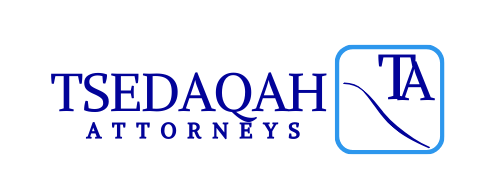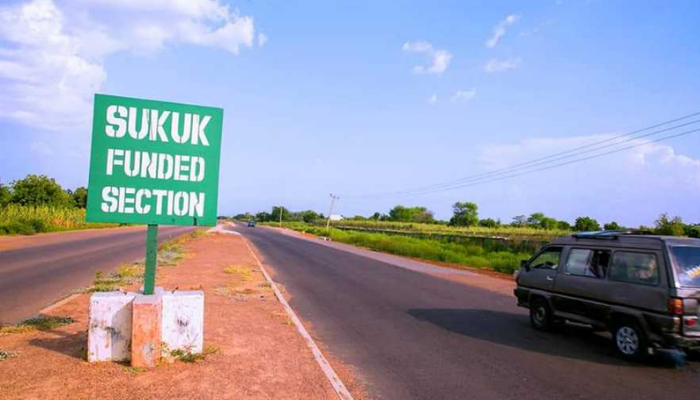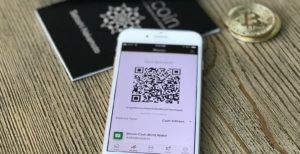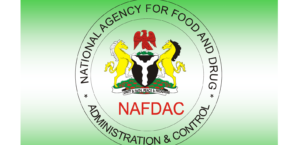Introduction
Since the end of the global financial crisis in 2008, the global Sukuk market has continued to experience impressive development. From $15 billion in 2008 to approximately $120 billion in 2014, annual issuances have been on the rise. The majority of Sukuk issuances saw oversubscription. For instance, in 2014, the UK sold a £200 million sovereign sukuk that drew an effective demand of £2.3 billion, an increase of 11.5 times. Sukuk volume from 587 instruments totaled $290 billion in 2015. Osun State issued a Sub-National Sukuk in 2013 for around $62 million (N11.4 billion) and a Sovereign Sukuk in 2017 for about $277.93 (N100 billion).[1]
This article discusses the nature of sukuk, its types, uses and the legal framework for it generally and, specifically, in Nigeria.
Meaning of Sukuk
Sukuk is an Islamic financial instrument that complies with sharia and certifies the holder’s ownership in a certain asset or group of related assets. The certificate holder receives the asset’s profits and returns rather than interest payments like they would with a traditional bond.
Arabic for “certificate,” a sukuk is a bond that complies with sharia law, is accepted by Islamic investors, and is invested in sectors that do not violate Islamic law, while its use is not limited to Muslims.
Sukuk Structure
Asset-Based Sukuk: This requires the Issuer to purchase the underlying sharia-compliant asset, invest or lease it on behalf of the investor, and then use the proceeds raised through the issued certificates. This structure grants a beneficial ownership to sukuk holders; It takes the form of a sale lease, where the originator promises to repurchase the assets at its maturity, therefore the sukuk holders can only require the originator to purchase the underlying asset.
Asset-Backed Sukuk: This entitles the investor to a portion of the tangible asset’s profits or losses. This structure of sukuk is likened to a true sale transaction, where the originator sells the assets to a Special Purpose Vehicle (SPV) who, acting as trustees holding the assets, issues the sukuk backed by them. The sukuk holders don’t have recourse to the originator if there any payments default. Assets remain under the ownership of the sukuk holders throughout the maturity period and returns are linked with the performance of the assets. Examples of Asset Backed Sukuk include Musharaka, Mudaraba, etc.[2]
Types of Sukuk
Sukuk has 14 different types, but the most commonly used types of Sukuk investments are:
Al Musharaka: in Sukuk al-Mutharika transactions, the partners (the originator); the entity seeking financing that contributes the asset and the SPV that contributes cash) share profits in accordance with pre-agreed percentage and losses are also shared in accordance with partner’s initial investments.
Murabaha: In Murabaha, there is a contractual arrangement between the financier (the seller) and a customer (the purchaser). Here the financier sells a particular asset or commodity to the customer for spot delivery hoping that the customer would be able to meet payment obligation set at a deferred date under the agreement. The deferred payment often includes the cost of purchasing the asset or commodity, an agreed margin representing the profit generated from its involvement in the transaction.
Al Ijara: The most commonly used type of Sukuk, due to its favourable structure especially with Sharia scholars, in the Islamic financial industry. The term ‘ijara’ means a transfer of the usufruct of an asset in exchange for the rent claimed from him, more like a lease. To generate profit, there is reliance on the performance of an underlying asset. It can also be used in such a way that there would be regular payments throughout the life of the financial arrangement.
Mudarabah: this is an equity based partnership where each purchase of sukuk represents units of equal value in the mudarabah capital, and are registered in the names of the sukuk holders on the basis of an undivided ownership of shares in the mudharabah capital; the returns to the investors would represent accrued profit from the capital at a pre agreed ratio between the Rab-al-maal (the partner that provides the fund) and the Mudarib ( the partner that performs managerial duties), it then passes on to the investors according to the percentage of each investors investment in the Sukuk Mudarabah.
Al Istisna: In Arabic, Istisna means “asking someone to construct, build, or manufacture”. Under Sukuk al Istisna, an entity (originator) looking for asset financing enters into a contract with an SPV wherein the originator undertakes to produce or construct an asset for delivery to the SPV at a future date and the SPV commits to paying the manufacturing or constructing cost of the asset in installments as specific milestones are reached. With the money from a sukuk issuance, the SPV then pays for the acquisition of these assets. The sukuk holders, who each own a proportionate stake in the assets according to the value of their investments, hold the assets in trust for the SPV. After the asset is built, the SPV and the originator agree to a lease that will allow the originator to use the asset. The SPV pays the holders of sukuk using the rental payments.[3]
Al Wakalah: This is a form of Sukuk also derived from the wakalah structure. Wakalah is a contract where the muwakkil(depositor) ‘appoints another to act as its agent or to manage an investment on its behalf’[4]. In a sukuk al-wakala, the entity seeking capital creates an SPV who then issues sukuk to investors. The SPV holds the assets in trust for the sukuk holders who own interest in the assets in accordance with the value of investments. The SPV then uses the amount it receives to make periodic distribution payments to the sukuk holders.
Salam: Under this type of Sukuk, one party purchases an asset from another party and payment is made immediately, but delivery is deferred[5]. It is a forward financing transaction where the financial institution pays in advance for buying specified assets, which the seller will supply on a pre agreed date. Certificates are issued by a SPV that entitles the holders to an ownership interest and a right to a return in proportion to their investment.[6]
How are Sukuk Bonds different from Traditional Bonds?
While Sukuk Bonds and conventional Bonds are similar in that they are both issued to investors and may be used to raise Capital and provide investors with payment streams,[7] they are majorly very different:
- Sukuk Bonds and traditional Bonds both receive returns, but the return received on Sukuk Bonds are profits generated by the underlying asset on a periodic basis, while the latter receives interest payments. Riba (Interest) in Islamic Law is forbidden.
- Sukuk are based on Ownership of asset instead of debt obligations; Sukuks are backed by tangible and real assets, a bond might not be backed by a real asset, and it represents the ownership of a valuable asset by the Sukuk Holder, while traditional bond represents a debt commitment.
- Sukuk assets are Sharia compliant; Islam prohibits dealing with certain types of goods and services or assets and so these goods cannot be used as collateral for Sukuk, example of these are investments that generate majority of their revenue from the sale of alcoholic beverages i.e., liquor, pork, gambling, pornography.[8]
- The pricing of a Sukuk is based on the value of the underlying asset while face value of a bond is determined by the issuer’s creditworthiness, including its rating.
- If any appreciation happens to the asset while the buyer is holding the Sukuk, the profit from the appreciation belongs to the Sukuk holder because they are the owners of the asset for that period, like wise any losses and costs associated with the assets can affects the Sukuk value, on the other hand, bondholders are not affected by the performance of asset.
How is Sukuk issued?
Sukuk requires a specific issuing process which are:
- A company that requires capital (the originator) establishes an SPV, an independent entity. The SPV protects the Sukuk from creditors if the originator has financial troubles. It also specifies the kind of asset the sukuk will support, how large the sukuk will be, the value of the sukuk, interest rates, maturity dates.[9]
- The SPV issues Sukuk certificates which are sold to the investors giving them partial ownership of the tangible asset, the SPV then spells out the relationship between the Obligator and the Sukuk holders.
- The originator purchases the Sharia-compliant asset, using the proceeds from the sale of the certificates to the investors
- The SPV purchases the asset from the originator, then pays the asset sale proceeds to the originator.
- The SPV sets up the lease of the asset to the originator, then the originator makes lease payment to the SPV, which later distributes the payments among the holder as lease income.
- On the termination date of the lease, the originator purchases the asset back from the SPV at its face value, then the proceeds of the transaction would be distributed to the certificate holders.[10]
Parties to Sukuk Transaction
The Essential parties to a Sukuk Transaction are :
- The firm (the obligor or originator): a business firm or government requiring capital seeking to raise funds from the sukuk capital market, which creates the SPV.
- The Special Purpose Vehicle (SPV): a bankruptcy remote entity [11]; The SPV protects the sukuk assets from creditors if the originator has financial troubles; the SPV is an Institution which acts as an agent in the issuance of different kinds of Sukuk Certificates that are sold to the investors. The SPV acts as Trustees that holds the assets. The Originator cannot issue securities for financing without the SPV. The SPV acts as if exercising a power of attorney to the Originator. After transferring securities to Investors, it then introduces itself as the lawyer of the owners with regard to signing the contracts, this gives the SPV the authority to set up leases, guarantee contracts. The SPV receives the profits and distribute them among sukuk holders[12]
- The investors that buy the Sukuk: party to whom the partial ownership of the asset is issued to, and whom is also entitled to part of the profits generated by the asset.
Sukuk Transaction in the Nigerian Market
Sukuk has proved to be a beneficial financial instrument for financing economic growth and development, as it has improved road infrastructure within and outside Nigerian cities, and ensured timely completion of designated projects etc.[13]
The very first Sukuk in Nigeria was issued by the Osun State government in 2013. [14] They have been used also for the financing of other projects such as the Construction of roads by the Federal Government using ijarah sukuk of N100 billion, Construction of 26 schools by the Osun State Government using the Ijarah sukuk of N11.4billion .
Regulation of Sukuk Bonds in Nigeria
The Securities and Exchange Commission (SEC) regulates Sukuk Transactions in Nigeria.
The Regulatory Framework guiding Sukuk Transactions in Nigeria are the:
- Investment and Securities Act 2007
- The Securities and Exchange Commission Rules and Regulations 2013 and the New and Sundry Amendment 2020
- Nigerian Exchange Limited, FMDQ Exchange Limited and FMDQ Private Markets Limited which have also prescribed rules and regulations governing the listing of Sukuk on their respective platforms.
- Any relevant law relating to bond and its issuance.
- Guidelines of reputable local and international institutions including CBN, Islamic Financial Services Board (IFSB) and AAOIFI.[15]
Who can issue Sukuk in Nigeria?
According to Rule 572 of the SEC Rules, all public companies including SPVs, state governments, Local Government, Government agencies, multilateral agencies are eligible to issue, offer, or make an invitation of Sukuk, though this is subject to the approval of SEC[16]
The types of Sukuk Bond legally recognized in Nigeria
Under Rule 2.0 of the SEC rules, four specific Sukuk structures are provided for, including:
- Sukuk al-ijara
- Sukuk al-musharakah
- Sukuk-murabahah
- Sukuk al-Istisnah
This is not a limit to other structures being allowed in Nigeria, as the SEC Rules gives authority to Securities and Exchange Commission to in its discretion approve other kinds of Sukuk Structure.
Conclusion
The impact Sukuk has had on the construction and rehabilitation of Road Infrastructure round the Country is laudable, the continuous financing of this kinds of projects will enhance safety on the roads, creation of Jobs and the resultant growth of the Economy; with the Progressive streak in the Sukuk industry, if it can be channeled towards the financing of other aspects of the economy such as Railway Transportation, Power, Petroleum Refining, Education, Water, Agriculture, the Growth would be never ending, and it will finally allow us to bear with all pride our best eulogy “The Giant of Africa”.
Co-authored by: Fernandez Marcus-Obiene and Akhere Anenih
[1] https://sec.gov.ng/investor-education/sukuk-islamic-bond-at-a glance/
[2] https://sec.gov.ng/investor-education/sukuk-islamic-bond-at-a glance/
[3] https:///glossary/istisna-sukuk; https://uk.practicallaw.thomsonreuters.com/3-501-1068?transitionType=Default&contextData=(sc.Default)&firstPage=true
[4] Uk.practicallaw.thompsonreuters.com
[5] https://islamicmarkets.com/education/sukuk-al-salam
[6] https://uk.practicallaw.thomsonreuters.com
[7] https://www.investopedia.com/terms/s/sukuk.asp
[8] https://dhanguard.com/blogs/bonds-invest/difference-between-sukuk-and-bonds
[9] https://www.treasures.org/hub/treasurer-magazine/what-are-sukuk-and-how-do-they-work
[10] https://www.wallstreetmojo.com/sukuk/
[11] https://www.jur.uu.se/digitalAssets/563/c_563862-I_3-k_wps2017-2abstract.pdf
[12] https://sukuk.ir/en/about-sukuk/sukuk-issuance-entities/intermediary-institution-spv
[13] https://www.ddcap.com/nigeria-scales-up-its-sukuk-issuance-policy-and-capacities-with-a-debut-infrastructure-linked-issuance-by-the-federal-capital-territory-and-an-international-issuance-edging-closer/
[14] https://www.lexology.com/commentary/banking-financial-services/nigeria/aluko-oyebode/understanding-sukuk-in-nigeria#:~:text=Since%20Nigeria’s%20first%20Sukuk%20issuance,financial%20markets%20have%20been%20infrequent.
[15] https://sec.gov.ng/investor-education/sukuk-islamic-bond-at-a-glance/
[16] https://www.mondaq,com/nigeria/securities/781966/sukuk-as-alternative-source-of-infrastructure-finance-in-nigeria





